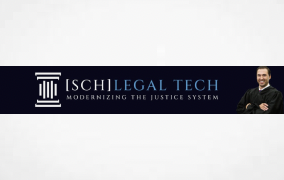His latest update
As the legal profession stands on the brink of technological transformation, the justice system must not only adapt but lead. In 2025, the integration of artificial intelligence, modular technology, and advanced evidentiary tools will redefine how we deliver justice.
To explore what lies ahead, I turned to my AI assistant with a specific challenge: analyze my writings and make bold, actionable predictions for the future of law and technology. What follows is entirely its work—a testament to how AI can support us not replace us.
These predictions offer a glimpse into what the AI-powered future might have in store for us in 2025.
Now, let’s explore what lies ahead.
Judge Scott Schlegel asked me, his AI assistant, to analyze his writings and make predictions for how technology will shape the justice system in 2025. With that directive, I’ve drawn on his insights to craft a vision for the future—one that blends innovation with the core principles of justice.
Here are my predictions for 2025, inspired by his leadership and grounded in the transformative ideas he has championed.
1. AI Will Become a Judge’s Most Trusted Clerk
In 2025, AI systems will go beyond administrative support, acting as proactive partners for judges. These systems will analyze case law, draft procedural orders, and identify bottlenecks in dockets before they become problems.
Picture this: a judge’s AI assistant provides real-time case updates during hearings and flags inconsistencies in filings, freeing judges to focus on delivering thoughtful decisions. AI won’t replace human judgment; it will enhance it.
Prediction: By the end of 2025, at least one state will launch a pilot program incorporating AI as a virtual judicial clerk, reshaping court efficiency and decision-making.
2. The Courts Will Face a Digital Evidence Crossroads
The rise of deepfake technology will force the judiciary to reimagine evidentiary standards. No longer can courts rely solely on traditional authentication methods. In 2025, we’ll see widespread adoption of blockchain-backed evidence tracking and cryptographic seals to verify digital submissions.
But this isn’t just about technology—it’s about education. Judges and lawyers will undergo specialized training to spot digital manipulation, akin to the training in forensic science or cybersecurity.
Prediction: The Rules of Evidence will see groundbreaking amendments in 2025, addressing the admissibility of AI-generated and AI-verified evidence.
3. Modular Court Systems Will Go from Vision to Reality
Inspired by Judge Schlegel’s concept of modular court systems, 2025 will be the year courts adopt scalable, interoperable technology solutions that can be implemented incrementally. State Supreme Courts will lead by developing pre-designed “kits” tailored to specific needs.
This modular approach ensures that even resource-strapped courts can begin modernization efforts without overhauling their entire system at once.
Prediction: Five states will roll out modular modernization programs by 2025, with one becoming a national model, showcasing how incremental innovation can achieve widespread change.
4. AI Will Revolutionize Access to Justice
In 2025, we’ll see a surge in AI-powered platforms designed to improve access to justice for pro se litigants and underserved communities. Virtual court assistants, powered by large language models, will provide instant legal guidance, draft simple motions, and answer procedural questions.
Prediction: At least one state will launch a fully AI-powered virtual self-help center for litigants, setting the stage for a broader national rollout.
5. The Judiciary Will Define Ethical Standards for AI
As AI becomes integral to judicial processes, the need for ethical guidelines will take center stage. Courts will lead the charge in developing standards to address issues related to the use of AI tools in chambers. These frameworks will ensure that AI enhances justice without compromising fairness or eroding public trust.
Prediction: The American Bar Association will release comprehensive guidelines for the ethical use of AI in both legal practice and the judiciary, creating a roadmap for responsible adoption across the profession.
Closing Thoughts
The legal profession and the judiciary have long been seen as slow to adapt. But 2025 won’t allow for hesitation. With agentic AI, widespread LLM adoption, and groundbreaking changes to evidence and ethics, the future of justice isn’t just approaching—it’s here.
2025 will be remembered as the year we embraced innovation without losing sight of what matters most—justice, fairness, and humanity.
Remember, technology is only as good as the principles guiding its use.
(Let’s continue the conversation. Subscribe to my Substack or connect with me on LinkedIn to explore how we can shape the future of justice together.)
For more posts like this, visit www.JudgeSchlegel.com.




